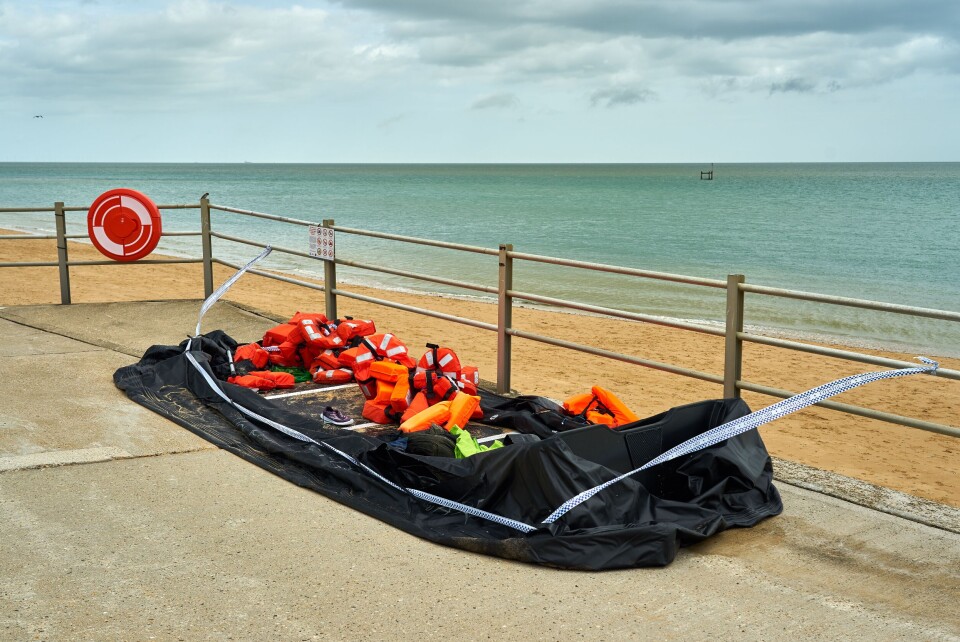-
White storks make strong return in France via nest ‘platforms’ and clipped wings
The Ligue pour la Protection des Oiseaux shares the conservation challenges in saving these birds from extinction
-
Hosting scheme in south-west France lets newcomers sample lifestyle
Households in nine Dordogne communes volunteer under Mes Nouveaux Voisins scheme
-
French boulangeries demand right for staff to work on May 1 so they can open
Artisan bakery owners can work but employees cannot, while certain industrial bakeries are allowed to remain open with workers
Channel deaths: French rescuers ‘very probably’ received distress call
At least 27 people died while trying to cross to England on November 24. French maritime authorities had claimed that they did not know about the incident until hours after it occurred

French emergency services were “very probably” alerted to the distress calls of the 30 people whose dinghy capsized as they attempted to cross the Channel to England on November 24, it has been confirmed.
The incident led to the deaths of at least 27 of the people on board, including several children.
Read more:‘France will not allow the Channel to become a cemetery’ says Macron
Until now, France’s maritime Channel prefecture, which runs the CROSS lifeguard services, had maintained that it did not know about the tragedy until hours after it had occurred, at 14:00 when bodies were spotted by a fishing boat.
However, investigative teams at Radio France have found that certain people in the boat did indeed call the CROSS Griz-Nez on 196 to ask for help.
It also appears that exchanges did occur in English, which several of the Iraki Kurds on board spoke well, as did the CROSS duty officer.
Véronique Magnin, who is spokesperson for the maritime Channel prefecture, has since confirmed that it is “very probable” that such phone contact did occur.
When asked why rescue crews did not arrive to help the migrants, the prefecture suggested that they may have gone out but been unable to find the dinghy.
It is also possible that lifeguards could have reached a different vessel in difficulty and mistaken its passengers for those who had made the phone calls. On the night in question, many boats had attempted the crossing, and the CROSS is reported to have rescued around 100 people.
A back-and-forth between French and British authorities
However, the prefecture denies claims that the French and British authorities both told the people in the boat that their rescue was the responsibility of the other side.
The two survivors of the incident, Mohammed Shekha Ahmad and Mohammed Isa Omar, both said during an interview with the Kurdish news outlet Rudaw that the other people in their dinghy had contacted British rescue crews, who told them to call their French counterparts.
When they did so, they were told to call the British authorities again.
Ms Magnin argued that: “It wouldn’t make any sense to save approximately 100 migrants and to leave those in that boat in the sea.”
However, humanitarian organisation Utopia 56 has nonetheless initiated legal proceedings against the prefecture, the director of the CROSS and the director of Her Majesty’s Coastguard UK Claire Hughes for involuntary homicide and failure to help people in need.
Utopia 56 had previously been told by another individual who encountered difficulties while attempting to cross the Channel that: “If I call 999, they tell me to call France and if I call France they tell me to contact the UK. Both of them are laughing at us.”
The CROSS has handed 5,000 recordings from the night of November 23-24 to Junalco (Juridiction nationale de lutte contre la criminalité organisée), which is leading the investigation.
These recordings include every exchange between the CROSS and commercial vessels, fishing boats and migrant dinghies around the time of the drownings. Through them, Junalco will be able to determine the true reaction of the CROSS to the migrants’ calls for help.
A British expert employed by the families of the victims has found that the last known position of the boat was one nautical mile inside British waters.
However, this does not exonerate the French authorities, who – under an international convention on maritime rescues – “are required to coordinate their search and rescue services with those of neighbouring states.”
Related articles
Channel migrant drownings: legal action launched in France
UK ‘should change asylum laws’ to stop Channel tragedies, say French
Let migrants in France take ferry to UK, says presidential candidate
























